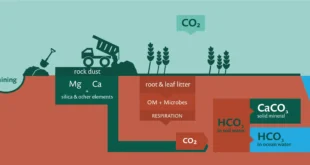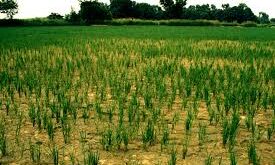- Recently, Prime Minister Addressed a Natural Farming Conclave, where he urged farmers to take up Natural Farming.
Natural Farming
- It is defined as a “chemical- free farming and livestock based”.
- Soundly grounded in agro-ecology, it is a diversified farming system that integrates crops, trees and livestock, allowing the optimum use of functional biodiversity.
- It holds the promise of enhancing farmers’ income while delivering many other benefits, such as restoration of soil fertility and environmental health, and mitigating and/or reducing greenhouse gas emissions.
- This farming approach was introduced by Masanobu Fukuoka, a Japanese farmer and philosopher, in his 1975 book The One-Straw Revolution.
- Internationally, Natural Farming is considered a form of regenerative agriculture—a prominent strategy to save the planet.
- In India, Natural farming is promoted as BhartiyaPrakritikKrishiPaddhatiProgramme (BPKP) under ParamparagatKrishiVikasYojana (PKVY)
- BPKP is aimed at promoting traditional indigenous practices which reduce externally purchased inputs.
Significance of Natural Farming
- It is considered as a cost- effective farming practice with scope for raising employment and rural development.
- As Natural Farming does not use any synthetic chemicals, health risks and hazards are eliminated. The food has higher nutrition density and therefore offers better health benefits.
- It generates employment on account of natural farming input enterprises, value addition, marketing in local areas, etc. The surplus from natural farming is invested in the village itself.
- As it has the potential to generate employment, thereby stemming the migration of rural youth.
- It ensures better soil biology, improved agrobiodiversity and a more judicious usage of water with much smaller carbon and nitrogen footprints.
- The integration of livestock in the farming system plays an important role in Natural farming and helps in restoring the ecosystem. Eco Friendly bio-inputs, such as Jivamrit and Beejamrit, are prepared from cow dung and urine, and other natural products.
- The changes in soil structure with the help of organic carbon, no/low tillage and plant diversity are supporting plant growth even under extreme situations like severe droughts and withstanding severe floodand wind damage during cyclones.
- NF impacts many farmers positively by imparting resilience to the crops against weather extremities.
Issues Related to Natural Farming
- Sikkim (India’s first organic state), has seen some decline in yields following conversion to organic farming.
- Many farmers have reverted to conventional farming after seeing their ZBNF ( Zero-Budget Natural Farming) returns drop after a few years.
- While ZBNF has definitely helped preserve soil fertility, its role in boosting productivity and farmers’ income isn’t conclusive yet.
- An often-cited barrier by farmers in transitioning to chemical-free agriculture is the lack of readily available natural inputs. Not every farmer has the time, patience, or labour to develop their own inputs.
- A study in Nature Sustainability states that while the nutrient value of the natural inputs is similar to the chemical ones used in low-input farms (farms using lower quantities of fertilisers and pesticides), it is less in high-input farms.
- When such nutrient deficiencies are aggregated at a large scale, it might hamper the yield over the years, potentially leading to food security concerns.
Way Forward
- There is a need to Focus on promoting natural farming in rainfed areas beyond the Gangetic basin.
- Rainfed regions use only a third of the fertilisers per hectare compared to the areas where irrigation is prevalent.
SOURCE: THE HINDU,THE ECONOMIC TIMES,MINT
 Chinmaya IAS Academy – Current Affairs Chinmaya IAS Academy – Current Affairs
Chinmaya IAS Academy – Current Affairs Chinmaya IAS Academy – Current Affairs



